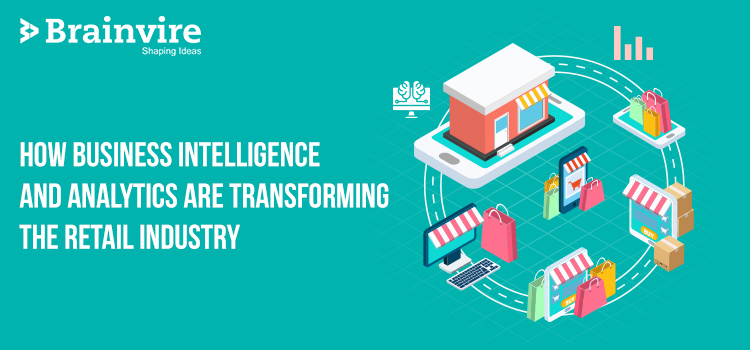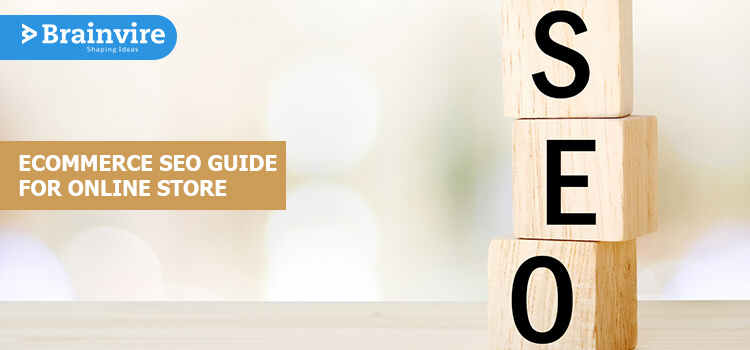
Talking About How Business Intelligence and Analytics are Transforming the Retail Industry, Business Intelligence is a set of technology-driven processes that help a business organization to analyze and convert raw data into actionable insights. Business strategists and executives use this meaningful information to drive profitable decisions. The procedure involves the collection and assembly of ready-to-use data for analysis.
The global business intelligence market is expected to reach $29.5 billion by 2022. Forbes has pointed out that executive management operations and sales are the major drives of business intelligence in organizations.
Besides business intelligence, data intelligence has also become an innovative trend allowing enterprises to gather and carefully analyze internal and external data to come across loopholes in the operation. Data intelligence implicates various activities such as real-time business performance, online analytics, data mining, and event processing.
Business Intelligence for the Retail Industry
Before we try to find an answer to the question – why BI for the retail sector, let’s get through a couple of quick stats-
- The report suggests that total global retail sales are projected to scale at $28 trillion by the end of 2020.
- Implementing business intelligence and smart analytics has proved to be a boon for data-driven organizations. A study reveals that they are more likely to engage customers 23 times more. Further, the study also informs you that BI helps you retain customers six times more, offering a profitable result in the end.
Above all, customers today are looking for impeccable products and services. Technology has evolved with the improvement in quality and the addition of new features. Therefore, it has become important for any organization to get familiar with data intelligence to clearly understand what customer needs and better their purchasing experience.
Let’s go into some details to know how business intelligence is transcending the retail business.
Simplifying the Preparation of Sales Reports
The retail business contains records of several sales receipts and transaction history, which when transferred to a spreadsheet can consume millions of rows and columns depending on the size of the business. Also, after investing so much of your valuable time, you are not sure about getting the exact insight into a sales report. It means there may be errors while copying out numbers.
Now, this is where business intelligence comes to the rescue of retailers. It will provide appropriate figures for every analysis such as how many users visited your site, how many products were sold in a particular week or month, which products have the highest demand and so on.
Once you get an answer to all these questions, you can improve your decision-making process. You will get the support of the key data trends and also be able to highlight the areas where performance was not matching up to the mark. You can even identify the opportunities that arrive your way.
However, if you want to unleash the benefits of business intelligence in a broader perspective, the way is to accumulate all the data from various sources and systems to gain more valuable information.
For example, the retail business intelligence can help you find out why the ice-cream sales dipped last month as compared to previous months.
Keeping Pace with the Changing Customer Trends
Talking About How Business Intelligence and Analytics are Transforming the Retail Industry, Customer demand keeps varying at a very swift pace, such that it is relatively difficult for a retail firm to match the pace.
Usually, the customers have a fetish for reasonably-priced high-quality durable products. They also want to engage with retailers through multiple channels. The customers today are comparatively smart and intelligent and buy a product only after extensive research and complete satisfaction on various factors.
It calls for modern business intelligence services that can track the rapidly changing consumer trends so as to provide an effective plan for product design and development with result-driven marketing strategies.
The retail BI solution helps you analyze Big Data to get across consumer purchasing behavior and plans for your promotional activities. In addition, you also get familiar with how the customer reacts to different marketing initiatives.
You can also keep a track record of your customers on various social media platforms. If you are regularly posting updates and offering new information, you get to know the number of likes, comments, shares, and reviews of the product in real-time.
Lastly, business intelligence also keeps an eye on your supply cycles to meet the changing consumer demands. You can improve your prediction and accuracy to effectively handle the seasonal requirements. You can work on your customer data to frame better strategies in order to attract more audience.
Streamline of the Inventory Management Process
Inventory management and analysis is an integral part of the retail business sector. Gone are the days when retailers had to manually check all the stock and then prepare a list of items to be ordered fresh. Business intelligence has streamlined the entire process, where you can analyze which products are abundant in quantity and once that needs to be reordered.
An exact inventory analysis allows you to know which items are selling fast and how many products you need to stock. Apart from that, business intelligence highlights the best and worst-performing product of the year. You can evaluate what went wrong with the product so that you don’t repeat the same mistake again.
Business Intelligence also provides ample support for managing multiple stores located across various geographical locations.
Boosting Your Marketing Performance
Talking About How Business Intelligence and Analytics are Transforming the Retail Industry, Business intelligence also proves to be more than a handful of assets to analyze and monitor the progress of marketing strategies efficiently.
It means you can keep an eye on how your website is performing with a focus on web traffic generation, search engine rankings, email marketing, social media interaction, and much more. You can track the performance through Google Analytics.
On A Ending Note
Business Intelligence is an advanced software solution that caters to various challenges faced by the retail industry. It offers you comprehensive data insights of the customers, information on current trends, and a better understanding of the competition to chalk out the right strategies to drive the business forward. You can even analyze the performance to make changes in your policy if needed.








